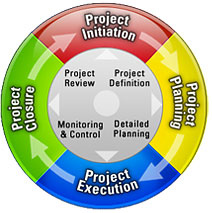 I think one responsibility leaders have is asking tough questions. Getting your people to think about what their roles are and how they can best fill them is a challenge all managers face.
I think one responsibility leaders have is asking tough questions. Getting your people to think about what their roles are and how they can best fill them is a challenge all managers face.
Recently my own manager asked a series of difficult questions in a department meeting. In responding to the questions, I felt like my opinion was valued and I worked through some thorny issues I’ve dealt with lately. It was really a fantastic exercise. I won’t reproduce my answers here, but it won’t hurt to share the thought-provoking questions with you, right?
1) What’s one think you want to improve? This could be whatever you like. It’s pretty open. Think of something.
2) What’s one thing you want to do that you’ve never done before? My list for this could be a mile long. Asking this question shows that you want to help your people advance in their careers.
3) What’s one thing for the department to improve? What would make yours better? Help your people uncover those issues that may be invisible to you as a manager. Or maybe you can see if the same problems you’ve observed are visible to them. So many possibilities for this one!
4) What’s something I (the manager) am not doing/providing for you (the employee)? Admit that you don’t know everything. Maybe you’ve missed something. Go for it. Who knows what you’ll find out?
These aren’t magic questions. They don’t really solve any problems. They do, however, provide a means of uncovering hidden issues and addressing them. And all it takes is actually asking your people. Funny how that works, huh?
 I’ve been reading a copy of Be Bodacious: Put Life in Your Leadership recently, and it’s been one of the better business books I’ve read this year. I’ve realized that a good mix of “story” and “lesson” is what I enjoy in a book. While there are a lot of good picks out there, a good book needs something to tie it all together and make it stick.
I’ve been reading a copy of Be Bodacious: Put Life in Your Leadership recently, and it’s been one of the better business books I’ve read this year. I’ve realized that a good mix of “story” and “lesson” is what I enjoy in a book. While there are a lot of good picks out there, a good book needs something to tie it all together and make it stick.

